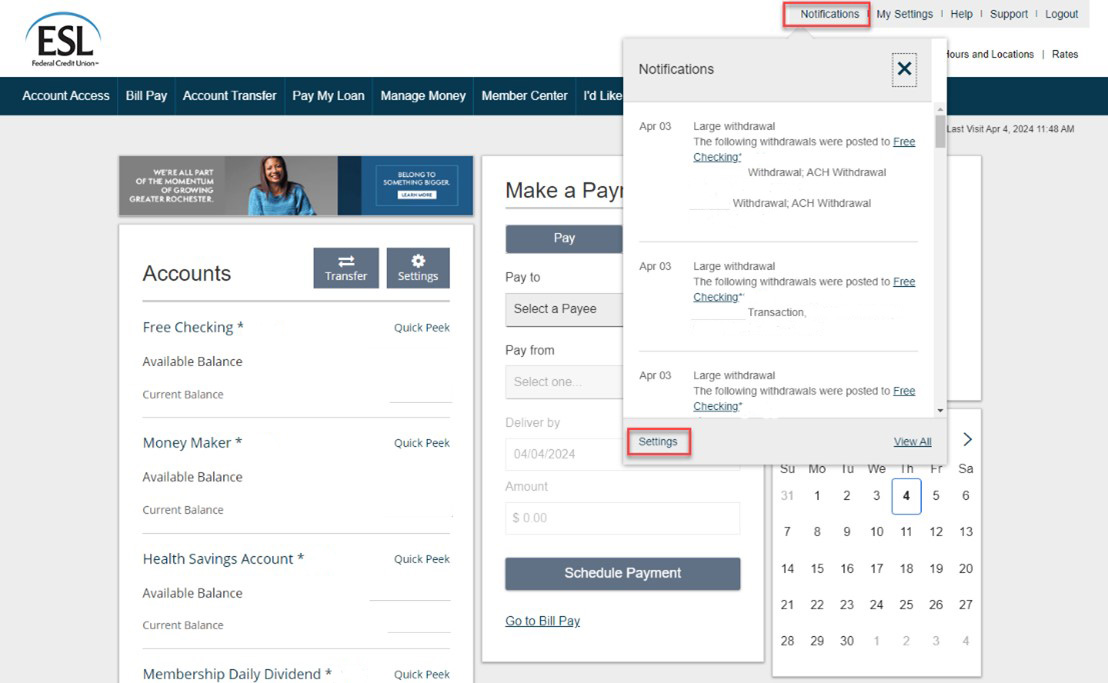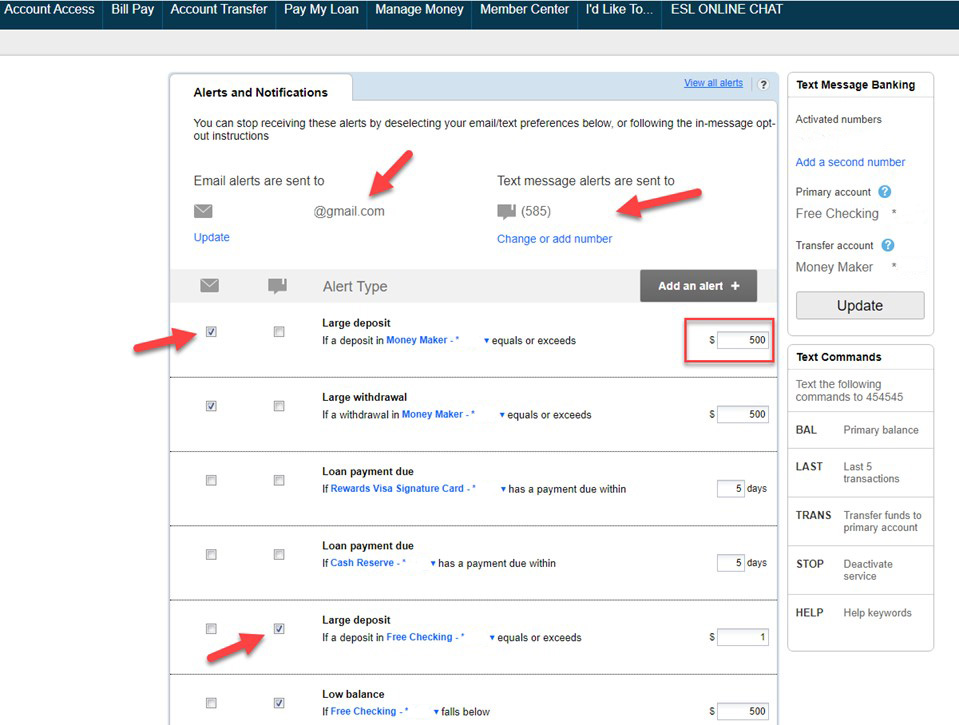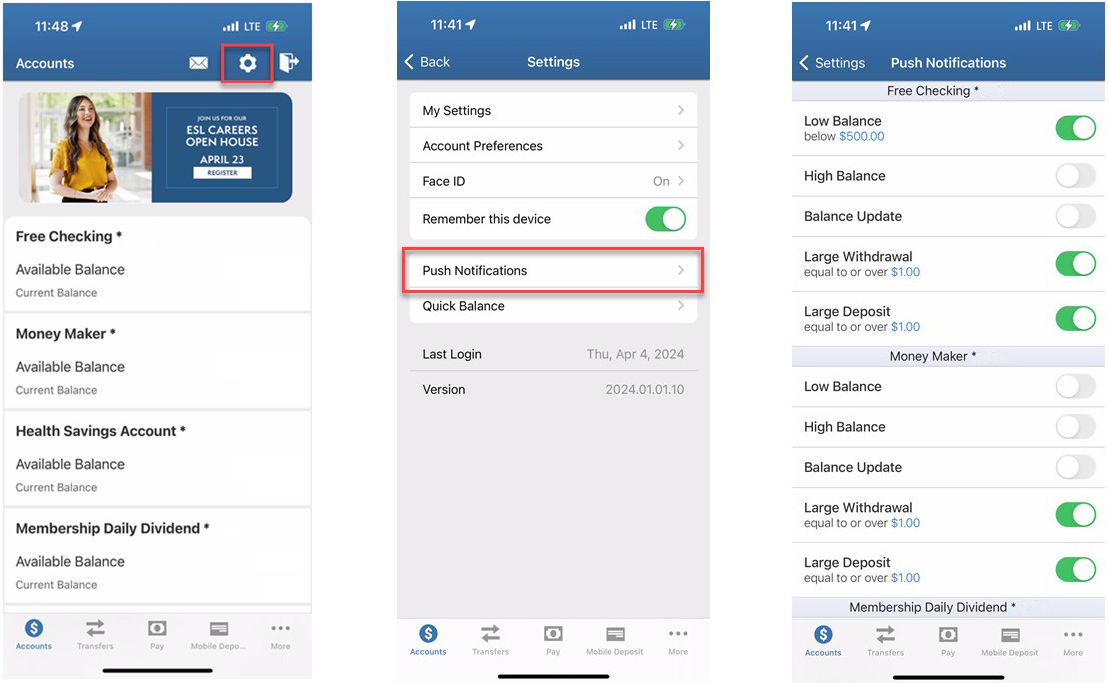Now more than ever, it is important to remain vigilant against an increasing volume of sophisticated fraud schemes. These days, cyber attackers and fraudsters are deploying advanced phishing attacks that may often deceptively pose as ESL Federal Credit Union, other financial institutions, or merchants.
It’s crucial to familiarize yourself with the following safety tips and recommendations to ensure you are equipped with the information you need to protect your finances. After all, knowledge is power!
Online and Mobile Safety Tips
Please exercise extreme caution upon receiving unexpected correspondence from unfamiliar phone numbers or email addresses. These messages will often convey a sense of urgency; however, it is important to think logically and take your time to determine the validity of the request. Please review the tips below for dealing with these types of emails, text messages and/or calls.
- Do not provide credentials, personal information, or financial information to any email sender, caller, or texter. This also includes your Apple, Samsung, or Google ID credentials.
- ESL will never ask you to provide any two-factor authentication codes or confirm login codes that have been sent to your phone or email.
- ESL may send transaction verification requests via text messages, emails, or phone calls; however, ESL will not request any personal information, such as login credentials, PINs, or full account and/or card numbers. Please do not provide this information if you receive a request asking for these details.
- Use caution with any email messages, text messages, or phone calls that portray a sense of urgency or fear.
- Do not click on links or open any attachments from email senders and/or phone numbers you do not recognize or were not expecting.
- Do your homework when it comes to donations, whether for charities, crowdfunding, or disaster-relief sites. Do not let anyone rush you into making a donation. Be wary of those asking for donations in cash, by gift card, or through wire transfers.
As more customers transact with us outside of our branches, we urge you to please take necessary actions to protect and safeguard your information.
Safety Tips for ATMs and Drive-Up Teller Services
- Never deposit a check into your account for a stranger. Fraudsters may persuade you to assist by offering you a portion of their deposit. Do not be their associate.
- Additional authentication may be requested for drive-up services to verify your identity and protect your accounts. Be sure to remove hats, sunglasses, and hoods to assist with identity verification.
- Be aware of your surroundings at all times. Remove headphones and turn down music in your car so you can hear noises as you use the ATM.
- Use ATMs that are well-lighted.
- Prepare your transaction, including counting and sorting funds, before you approach the ATM or drive-up.
- Cover your hand when entering your PIN at an ATM.
- Monitor your accounts daily for suspicious transactions.
Setting Up Text and Email Alerts
ESL offers text and email alerts for withdrawals, deposits, balance updates, and more. These can be set up by:
- Signing into ESL Online Banking
- Navigating to the Notifications page to set-up and customize email and/or text alerts.

- Updating contact information for email or text alert delivery as well as customizing which occurrences to trigger an alert.

Enabling Push Notifications
Mobile banking users can navigate to the Settings page within the ESL mobile app to set-up and customize push notifications.

Reporting & Preventing Fraud
If you see suspicious activity at an ATM or drive up, contact local law enforcement authorities immediately. If you see fraudulent activity on your account, please call our Fraud Team directly at 585.336.1140.
If you received an email or request that you feel is from a fraudulent site and you provided personal account information, notify us right away so a Fraud Prevention Representative can secure your ESL accounts. You can call us at 585.336.1140 or email us at Fraud_Prevention@esl.org.
If you have received a phishing email that appears to be from ESL or the National Credit Union Administration (NCUA) but you have not submitted any account information, please forward the email to us at Fraud_Prevention@esl.org.
Visit our Fraud & Security Center for additional resources.
Learn More |
